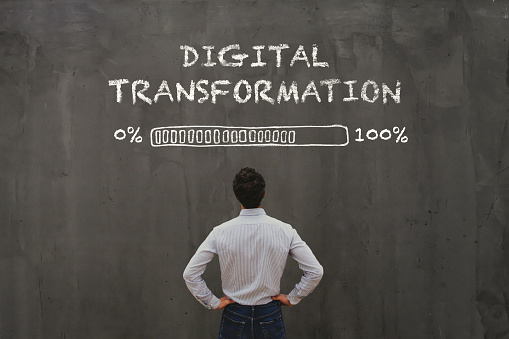Introduction
Digitalization refers to the process of transforming analog information into digital form. The term is used to describe the use of technology to convert traditional business practices and procedures into digital formats. This process has become increasingly important in recent years as businesses have sought to improve efficiency and streamline their operations. In this essay, we will explore the concept of digitalization, its impact on business and society, and the challenges and opportunities it presents.
Part 1: What is Digitalization?
Digitalization is a broad term that refers to the process of using technology to convert analog information into digital form. This includes everything from digitizing paper documents to automating manual processes using software and artificial intelligence. The goal of digitalization is to improve the speed, accuracy, and efficiency of business processes while reducing costs and improving the customer experience.
One of the key drivers of digitalization is the increasing availability of technology. In recent years, there has been a rapid growth in the use of smartphones, tablets, and other mobile devices, which has made it easier for businesses to reach customers through digital channels. At the same time, advances in cloud computing, big data analytics, and machine learning have made it possible to process and analyze vast amounts of data in real-time.
Digitalization has become increasingly important in recent years as businesses have sought to remain competitive in a rapidly changing global marketplace. Companies that fail to embrace digitalization risk falling behind their competitors and losing market share. In addition, digitalization has the potential to improve the quality of life for individuals by making it easier to access information, goods, and services.
Part 2: The Impact of Digitalization on Business
Digitalization has had a profound impact on business, transforming the way companies operate and interact with their customers. One of the key benefits of digitalization is the ability to automate manual processes and reduce costs. This includes everything from automating routine tasks such as data entry and order processing to using artificial intelligence to identify patterns in customer behavior and make recommendations for new products and services.
Digitalization has also made it easier for businesses to reach customers through a variety of digital channels. This includes everything from social media and email marketing to mobile apps and online marketplaces. By leveraging these channels, businesses can reach customers more effectively and build stronger relationships with them.
Another important benefit of digitalization is the ability to collect and analyze vast amounts of data in real-time. This data can be used to identify trends, optimize operations, and make better business decisions. For example, a retailer might use data analytics to identify which products are selling well and adjust their inventory accordingly. Similarly, a manufacturer might use data analytics to optimize their production processes and reduce waste.
Despite the many benefits of digitalization, it also presents a number of challenges for businesses. One of the biggest challenges is the need to keep up with rapidly changing technology. This requires a significant investment in technology and training, which can be costly and time-consuming. In addition, digitalization can be disruptive to existing business processes and require significant changes to the way companies operate.
Part 3: The Impact of Digitalization on Society
Digitalization has also had a significant impact on society, transforming the way we live, work, and interact with each other. One of the key benefits of digitalization is the ability to access information and services more easily. This includes everything from online shopping and banking to telemedicine and online education.
Digitalization has also made it easier for individuals to work remotely, which has become increasingly important in the wake of the COVID-19 pandemic. This has the potential to reduce commuting time and improve work-life balance for individuals.
However, digitalization also presents a number of challenges for society. One of the biggest challenges is the potential for job displacement as businesses automate manual processes and use artificial intelligence to perform routine tasks.



0 Comments